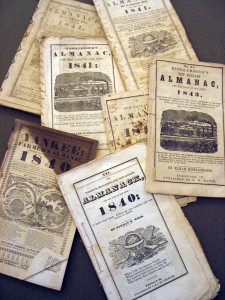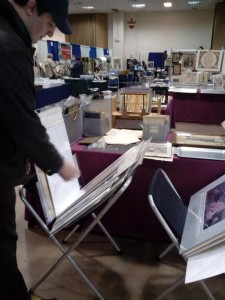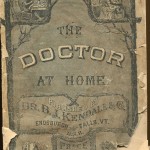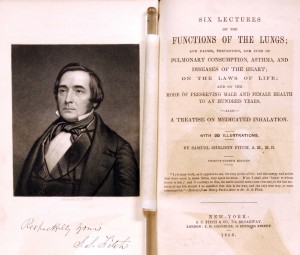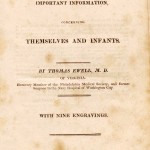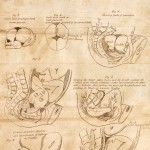We are excited to announce the Watkinson Library has been awarded a grant from the National Endowment for the Humanities! The preservation assistance grant of $6,000 will help care for a growing collection of American almanacs. http://commons.trincoll.edu/watkinson/?s=almanacs
The award will be used to purchase preservation-quality supplies to rehouse 1,700 almanacs, predominantly published in the 19th century. The almanacs are unprocessed and fragile, which limits their use by researchers. Once they are properly housed and processed they will be available for education, research and general viewing.
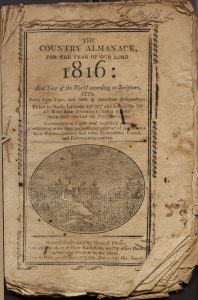
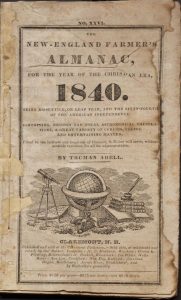 What makes almanacs so special? For over two centuries the almanac was one of the most commonly printed items in America, reaching more readers that any other secular publication. Most towns of a certain size in the early years of the country had a printing establishment and the yearly printing of an almanac was a good way of covering some of their expenses. The almanacs provide a glimpse into American cultural life from all strata of society. Contents from the New England Almanack of 1844 include a list of officers of the U.S. government from the founding of the Republic, a table of roads from Boston to Concord & Portland, a list of American warships (with the number of guns); populations statistics, poems, anecdotes, interesting facts, puzzles, a math problem, rates of postage, and distances, weights and measures mentioned in the Bible. It was a compendium of useful facts and a source of entertainment.
What makes almanacs so special? For over two centuries the almanac was one of the most commonly printed items in America, reaching more readers that any other secular publication. Most towns of a certain size in the early years of the country had a printing establishment and the yearly printing of an almanac was a good way of covering some of their expenses. The almanacs provide a glimpse into American cultural life from all strata of society. Contents from the New England Almanack of 1844 include a list of officers of the U.S. government from the founding of the Republic, a table of roads from Boston to Concord & Portland, a list of American warships (with the number of guns); populations statistics, poems, anecdotes, interesting facts, puzzles, a math problem, rates of postage, and distances, weights and measures mentioned in the Bible. It was a compendium of useful facts and a source of entertainment.
The work on the almanacs will be spread out over 2018. Watkinson staff will train students to assemble and label the binders that house the almanacs. They will gradually become accessible through the library online catalog as they are processed by Watkinson staff.
“Any views, findings, conclusions, or recommendations expressed in this posting do not necessarily represent those of the National Endowment for the Humanities.”
This project has been made possible in part by the National Endowment for the Humanities.
